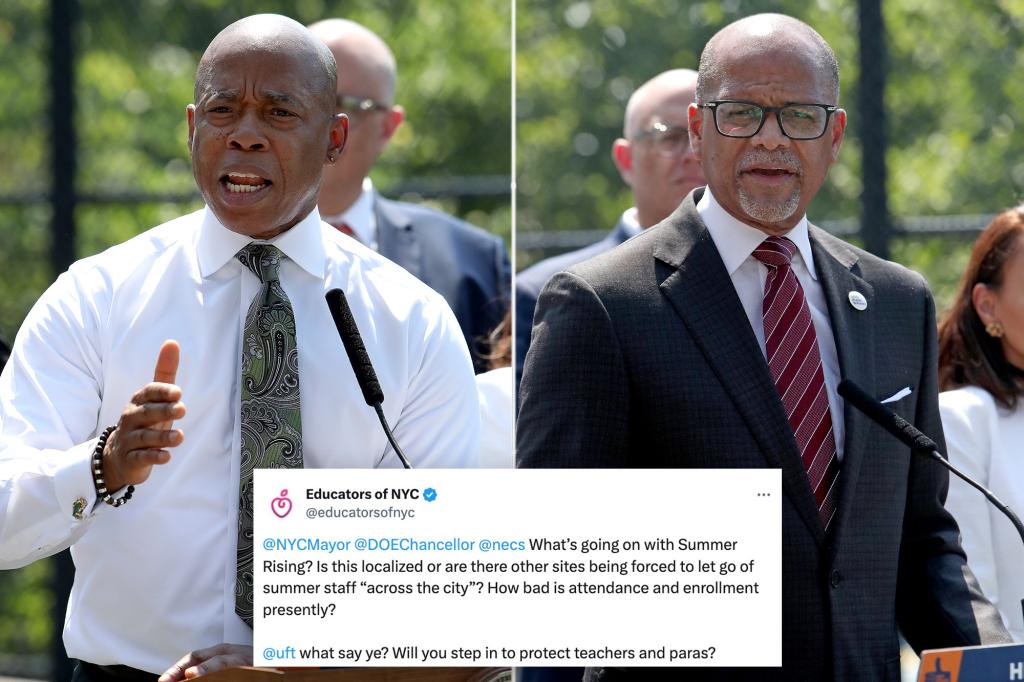Summer Rising, a K-8 summer program in New York City, has been facing challenges with falling attendance and questions regarding where the $350 million budget has been spent. Teachers and administrators have reported that only a fraction of the 110,000 registered students are showing up, while tens of thousands are on the waitlist. The program has hired more teachers than necessary due to the low attendance, leading to the consolidation of classes and the potential release of some teachers from their positions.
Despite efforts to reach out to families, summer attendance has been poor across the city, according to an email shared by Educators of NYC. Students may be deterred from returning due to boring exams and fewer field trips than initially promised. Additionally, some community-based organizations running the recreational activities are not up to par, leading to inconsistency between programs. While attendance is higher among younger children, older students may be less inclined to participate, especially those needing to make up failed classes.
While the Department of Education insists that this summer’s attendance is on par with last year, some former Summer Rising teachers and educators have shared concerns about the effectiveness of the program. Classes for academically struggling students have been combined with those who do not need additional help, potentially impacting the quality of instruction. The DOE assured that teachers will not be let go and stated that Summer Rising continues to provide support to families with rigorous academics, enrichment, meals, and social-emotional support.
Parents have expressed frustration over not being notified about open spots in the program from the waitlist, raising questions about the transparency and communication surrounding Summer Rising enrollment. The program was established in 2021 with COVID-19 stimulus money under former Mayor de Blasio but faced budget cuts when federal funds ran out. Following outcry, taxpayer dollars were allocated to sustain the program. Experts had warned about the risks of using non-recurring funding for programs that may become unsustainable in the future, ultimately driving up baseline spending without clear results in addressing learning loss.
In conclusion, Summer Rising is facing challenges related to low attendance, staffing issues, and concerns over the use of taxpayer dollars. While the program aims to provide educational support and enrichment for students during the summer, there are gaps in communication, consistency between programs, and effectiveness in addressing academic needs. As the DOE continues to navigate the complexities of running Summer Rising, there is a need for transparency, communication, and reassessment of the program to ensure that it meets the needs of students and families effectively.


